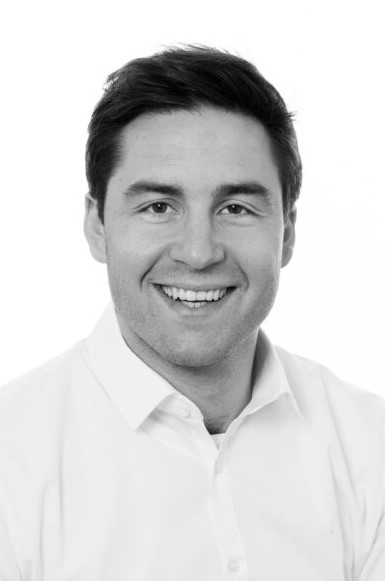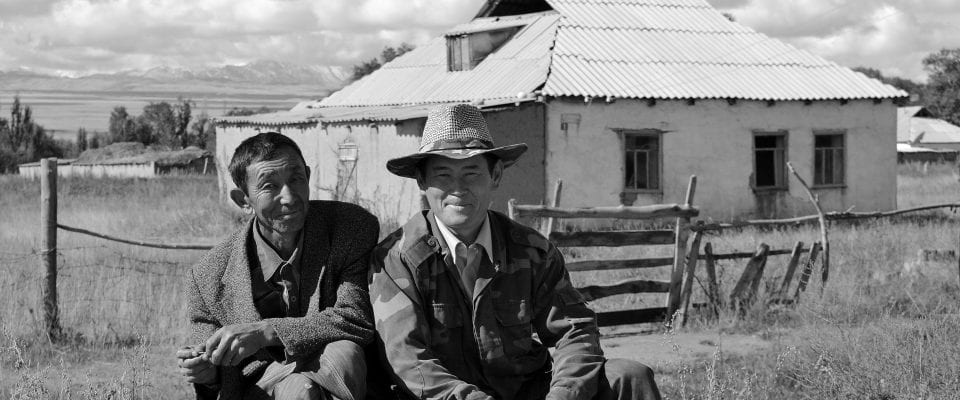“Every dollar that we swap or hedge is a dollar less risk in development finance”
Analyst Amadeus Bringmann works for TCX, a company operating under the umbrella of Cardano Development whose core business lies in managing currency risk. TCX describes itself as ‘offering a global solution to currency risk in frontier markets’. But what exactly does that mean? And what’s in it for impact investors?
Currency mismatch
Basically, TCX creates a currency exchange market where no commercial alternative exists, thus enabling development finance to be made available in local currency instead of in hard currency. TCX then exits the market once a commercial alternative emerges.
Founded in 2007, TCX’s shareholders are development finance institutions (DFIs) from Germany and the Netherlands, as well as the European Bank for Reconstruction and Development, the International Finance Corporation, the European Commission and the Dutch, German, UK and Swiss governments.
Offloading the currency risk
‘Organisations who invest in developing countries and wish to provide loans in local currency instead of hard currency (often US dollars) can pass on their currency risk to us. Because they don’t want to keep the currency risk on their balance sheets, they enter into a swap agreement with us. We can offer this service in over 100 different currencies – we currently have over 60 active currencies in our portfolio.’
‘It’s not always an easy message to get across, because it requires an understanding of currency risk. Local currency financing is often more sustainable than hard currency financing in frontier markets. So we explain to our stakeholders how a financial institution that ‘only’ provides currency swaps has a positive impact on the end beneficiary, who might be a local farmer, for example.’
A success story from Myanmar
And positive impacts there have been. In Myanmar (formerly known as Burma), for example, where a partnership between TCX and the Livelihoods and Food Security Fund (LIFT), a UN initiative, boosted access to much-needed capital in the microfinance sector. Lending in local currency had been unattractive for foreign investors, due to the volatility of the Myanmar kyat and a regulatory interest rate cap of 13%. So TCX and LIFT joined forces to open up the microfinance sector to foreign investments. TCX provided a hedging service which enabled investors to lend in local currency to Myanmar’s microfinance sector, while at the same time protecting them from any exchange rate volatility. LIFT, for its part, subsidised the interest rate levels of local currency loans, bringing them down to 13%, i.e. the central bank’s interest rate cap. All of a sudden, lending in kyat became attractive to foreign investors.
The facility was launched on 1 December 2016, and was vastly oversubscribed within a few minutes, with eventually over USD 200 million in requests.
The facility was – and still is – a huge success, as witnessed by the appetite of impact lenders for microfinance institutions in Myanmar: the facility was launched on 1 December 2016, and was vastly oversubscribed within a few minutes, with eventually over USD 200 million in requests. TCX expects to extend these successful partnerships in other regions, working in conjunction with the European Commission.
Additionality
Additionality is one of TCX’s characteristic features: ‘By definition, we offer our services only if there is no commercial solution available. It would normally be the job of a bank to provide hedges for currency risk. But for those currencies, or durations, where the banks either cannot price the risk or where they feel it’s too risky or not worth the business – that’s where we come into the picture. So if a commercial bank offers a three-year hedge in the Brazilian currency, the Brazilian real, we would only offer hedges from beyond three years. We can offer hedges in any currency from countries that are eligible to receive official development assistance according to the OECD’s Development Assistance Committee.’
More sustainable, more transparent
Historically, microfinance has generally been extended in local currency, which is why a large part of TCX’s portfolio still consists of hedges for microfinance transactions. ‘But we are seeing more and more infrastructure projects,’ says Bringmann, ‘and even though these are of course much larger volumes, the same principle applies: local currency financing is often not only more sustainable, but also raises the risk transparency.’
How does Bringmann explain TCX’s success over the years? ‘We operate like an insurance company protecting people against currency risks and paying out in the event of devaluations. Especially at times like this, as the Covid-19 pandemic fuels volatility around the world, the currencies in some of the emerging and frontier markets may actually depreciate by 20% or 30% within a single month. Just imagine a local entrepreneur having to pay back that sort of mark-up in an already difficult economic environment. These are extreme scenarios, of course, but overall, currency risk remains a fundamental risk in these markets. That’s why our solution has worked over the last 13 years and why we’re growing.’
TCX’s role in opening up frontier markets to institutional investors is another success story. ‘Back in around 2013, we looked at the institutional and the private markets to see whether institutions such as pension funds might be interested in investing in frontier currency-denominated bonds, because they usually have a higher rate of interest. It’s an attractive asset class, especially in the current low-interest environment. So we started structuring frontier currency notes issued by our AAA-rated shareholders. We created a new asset class and it’s been very successful. This helps us to match some of the currency risk in our portfolio and at the same time to give investors cost-efficient exposure to currency risk in frontier markets – a win-win situation



